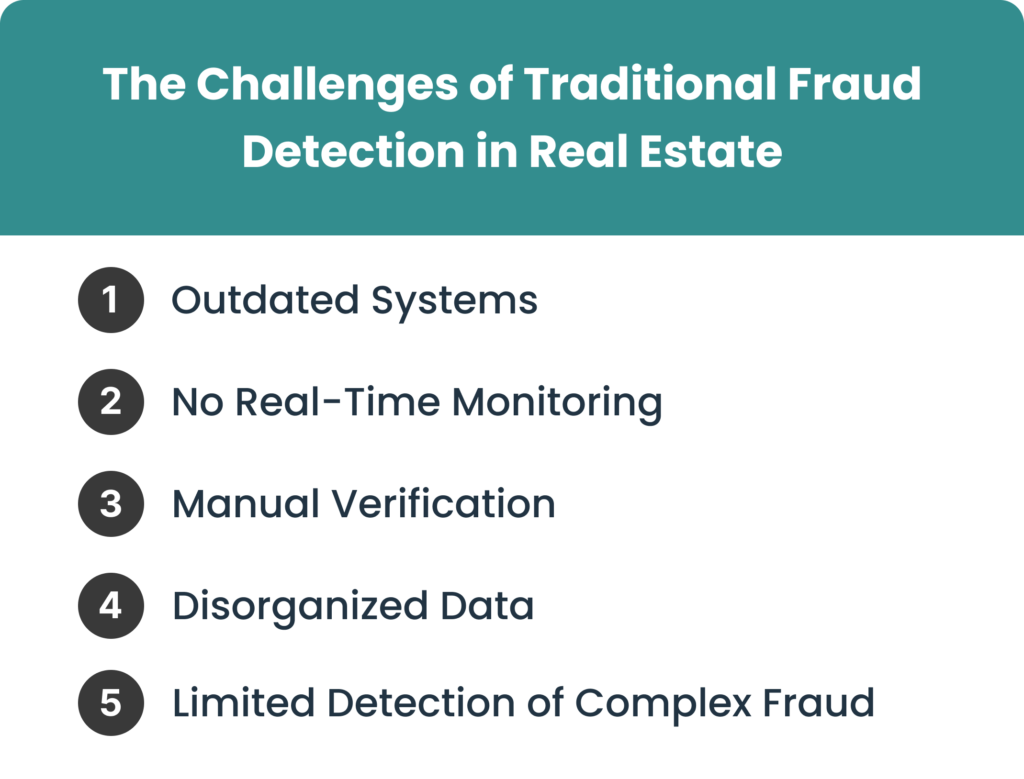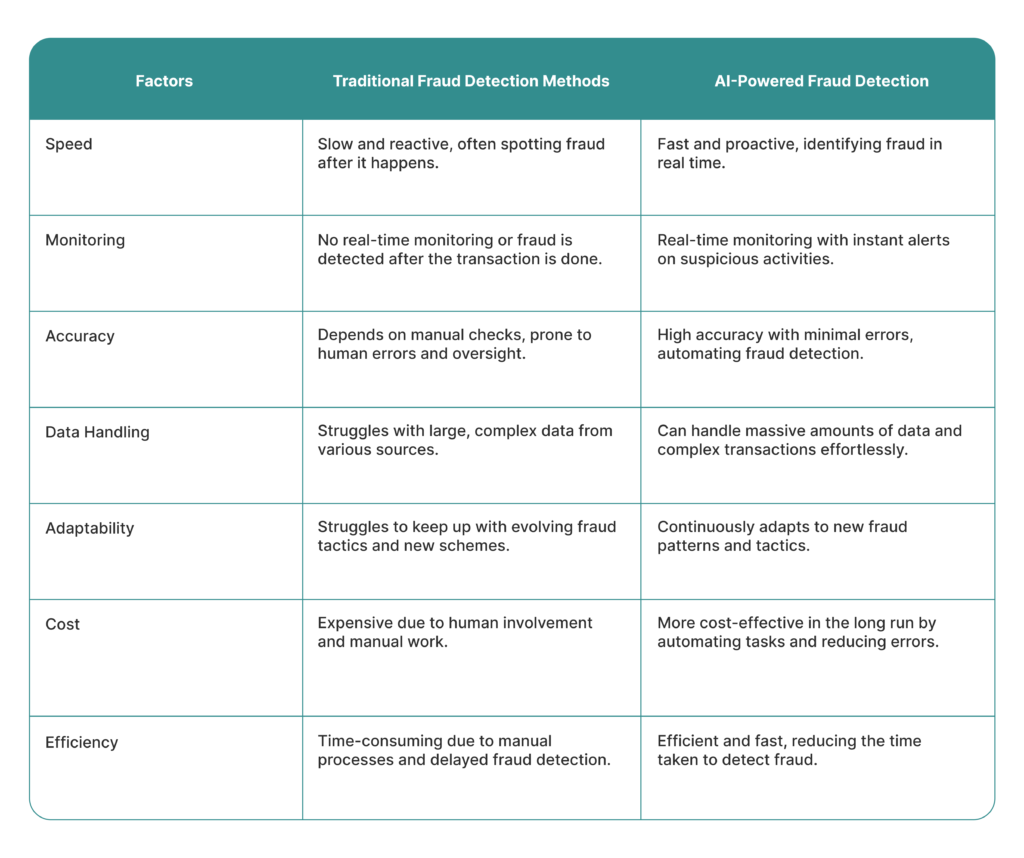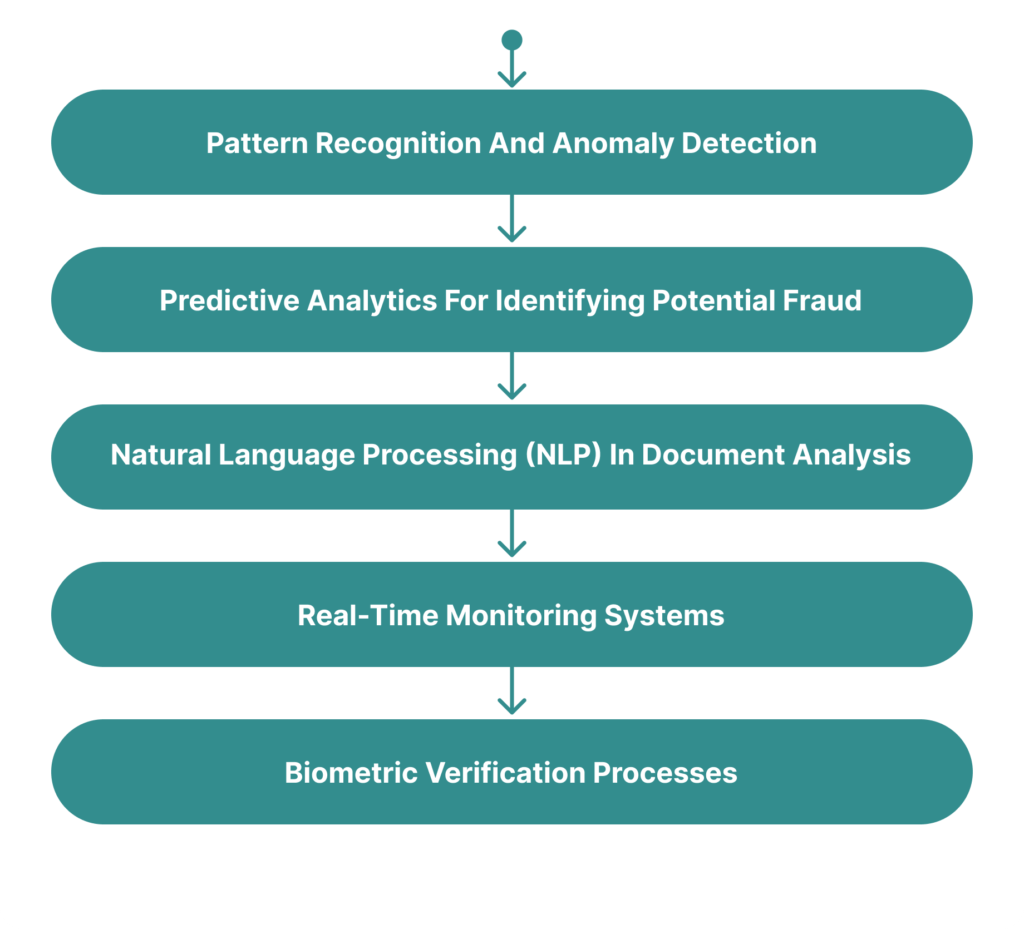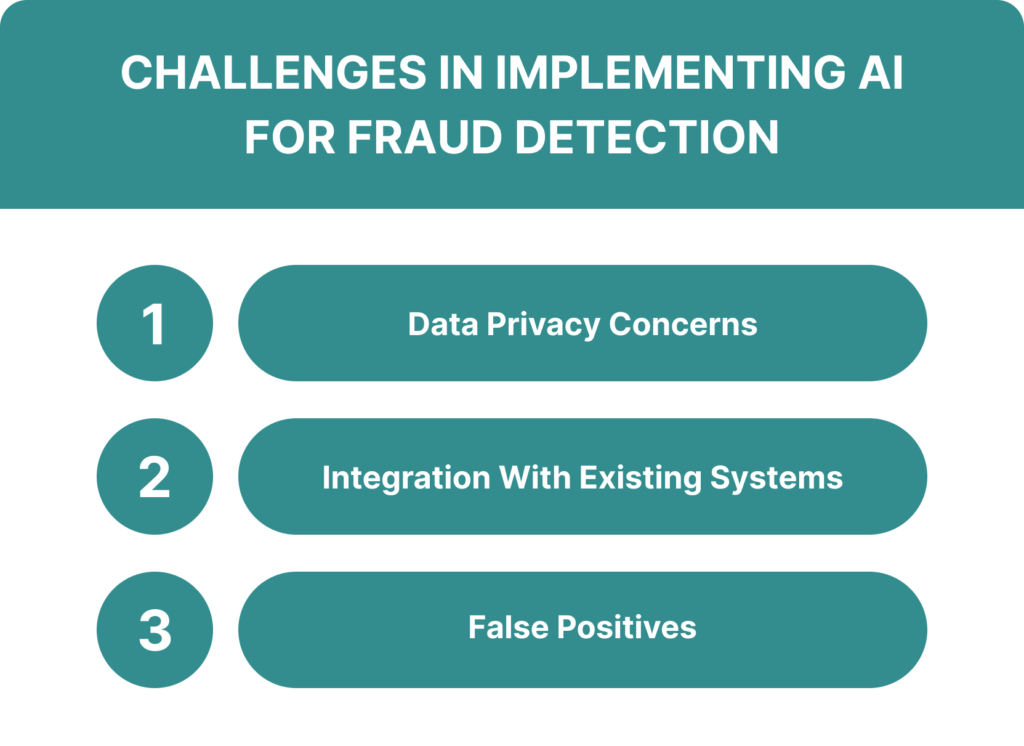Real estate transactions are a huge deal–they often involve life savings, dreams of homeownership, or significant investments. But like any major transaction, they’re not without their risks. The danger? Fraud.
Real estate transactions are a cornerstone of the global economy and a prime target for fraud. Every year, billions of dollars are lost to fraudulent activities, creating massive financial risks for buyers, sellers, and real estate professionals. Traditional methods of detecting fraud often can’t keep up with criminals’ increasingly illegal tactics.
However, AI-powered fraud detection in real estate transactions is changing the game. By analyzing large amounts of data and identifying hidden patterns, AI can spot suspicious activities in real-time. Using techniques like graph analytics, AI maps out relationships between parties, transactions, and assets, quickly identifying potential risks and preventing fraud.
As we approach 2025, AI-driven fraud detection is becoming an essential tool in real estate, offering new levels of security and transparency. In this blog, we’ll explore how AI is transforming fraud detection in real estate transactions and making property deals safer than ever.
The Challenges of Traditional Fraud Detection in Real Estate
Fraud detection in real estate transactions is essential, but traditional methods have a hard time keeping up. Here are the main challenges:

Outdated Systems
Many real estate fraud detection methods depend on old, manual systems that can’t keep up with modern fraud tactics. These systems often fail to detect key details that could help prevent fraud.
No Real-Time Monitoring
Traditional methods don’t provide real-time monitoring, so fraud is often detected only after the transaction is complete, increasing the risk of financial loss.
Manual Verification
Fraud checks are performed by people manually reviewing documents. This process can be slow and vulnerable to errors, allowing fake transactions to go unnoticed.
Disorganized Data
Data is stored in different places in many real estate transactions, and these systems don’t always work well together. This makes it difficult to collect all the important information in one place, which can lead to missing or incorrect details about a transaction. Without one system to keep track of everything, fraudsters can take advantage of this mess. They can hide suspicious actions by changing bits of data, making it harder for people to spot fraud.
Limited Detection of Complex Fraud
Traditional methods struggle to detect complex fraud schemes, like fake identities, which are becoming more common in real estate.
AI vs. Traditional Fraud Detection Methods
Let’s take a closer look at how traditional fraud detection methods compare to AI-powered fraud detection in real estate transactions:

The Role of AI in Modern Fraud Detection
AI-powered fraud detection is transforming real estate security by analyzing vast amounts of data, identifying suspicious patterns, and predicting unfair activities before they occur. Compared to traditional methods, AI provides:
- Enhanced Accuracy – AI reduces human error and detects fraud with greater precision.
- Real-Time Monitoring – AI-driven systems flag suspicious transactions instantly.
- Automation of Processes – AI streamlines fraud detection, reducing the need for manual verification.
AI Techniques Transforming Real Estate Fraud Detection

1) Pattern Recognition and Anomaly Detection
AI algorithms analyze past transactions to detect anomalies that may indicate fraud. Unusual transaction patterns, mismatched signatures, or inconsistent documentation can be flagged for further review.
2) Predictive Analytics for Identifying Potential Fraud
By using historical data, AI predicts potential illegal activities before they happen, allowing for preventive actions.
3) Natural Language Processing (NLP) in Document Analysis
NLP enables AI to review and validate legal documents, identifying inconsistencies and fraudulent modifications in property records.
4) Real-Time Monitoring Systems
AI continuously scans databases and transaction records, providing instant alerts on suspicious activities, and helping to prevent fraud from going unnoticed.
5) Biometric Verification Processes
AI-powered biometric verification ensures that only authorized individuals complete real estate transactions, minimizing identity theft.
Challenges in Implementing AI for Fraud Detection
While AI offers great potential, its adoption faces certain challenges:

- Data Privacy Concerns – AI depends on large datasets, raising security and privacy issues.
- Integration with Existing Systems – Implementing AI in traditional real estate systems requires significant investment.
- False Positives – AI must continuously improve to minimize incorrect fraud alerts.
The Future of AI in Real Estate Fraud Prevention
The future of AI in real estate fraud detection is promising. With innovations like blockchain, advanced machine learning, and AI-driven property checks, fraud prevention is about to get a major boost. As AI continues to improve, it will become even better at catching fraud early, keeping real estate transactions safe for everyone – from buyers to sellers to investors.
Conclusion
AI is revolutionizing fraud detection in real estate transactions by enhancing security, improving efficiency, and reducing risks. With continuous advancements, AI will play a crucial role in protecting real estate investments from illegal activities. Adopting AI-driven solutions will be essential for real estate professionals to stay ahead of evolving fraud tactics.
